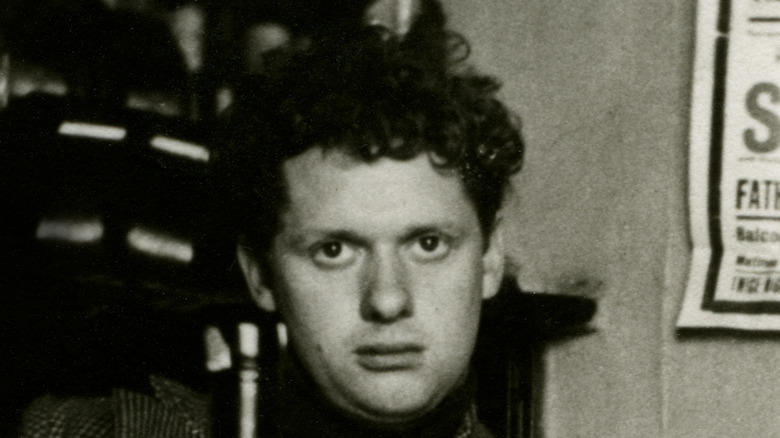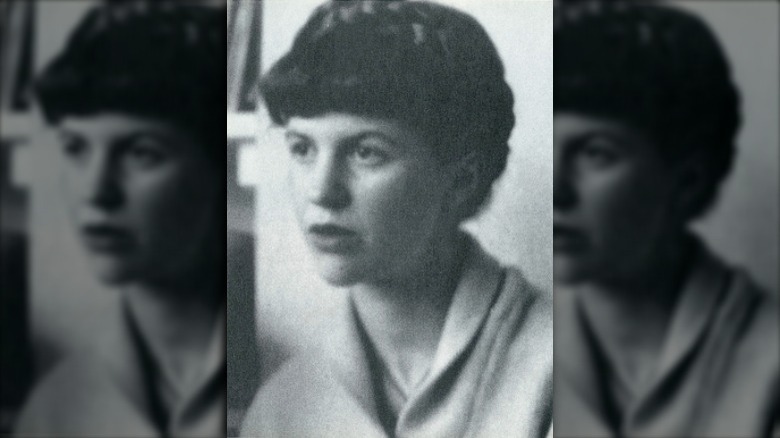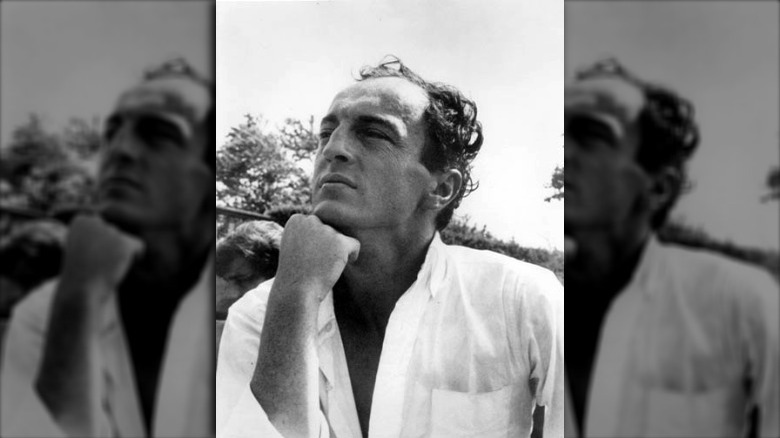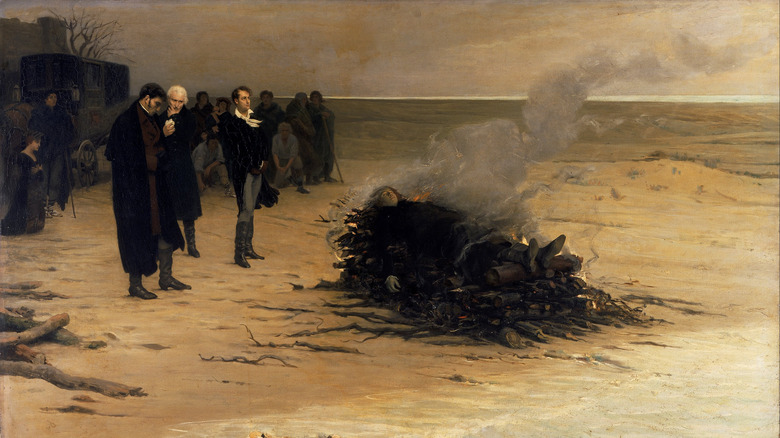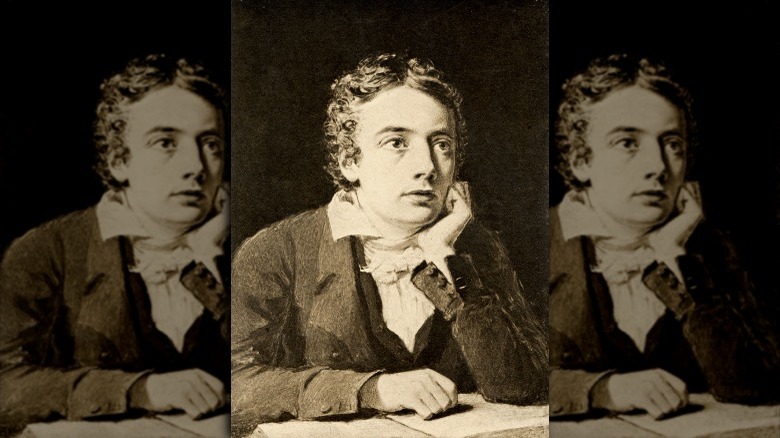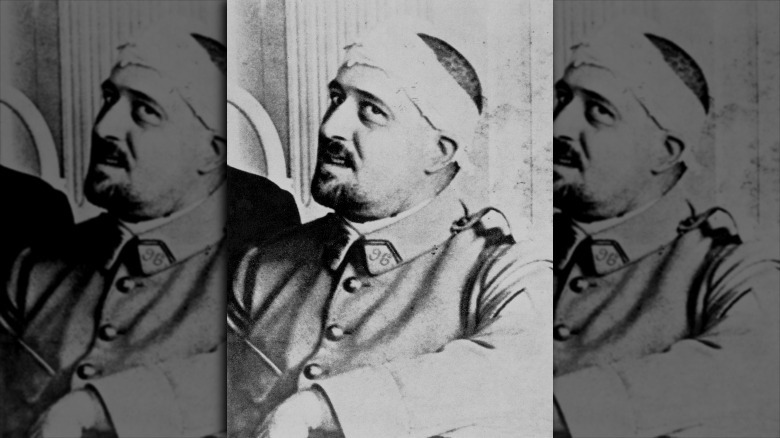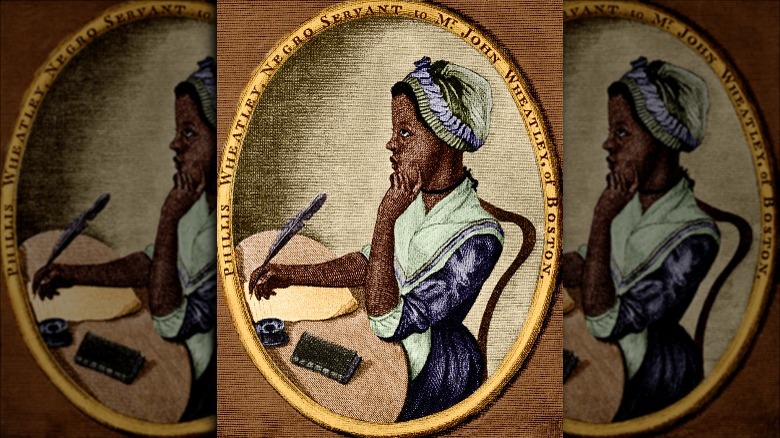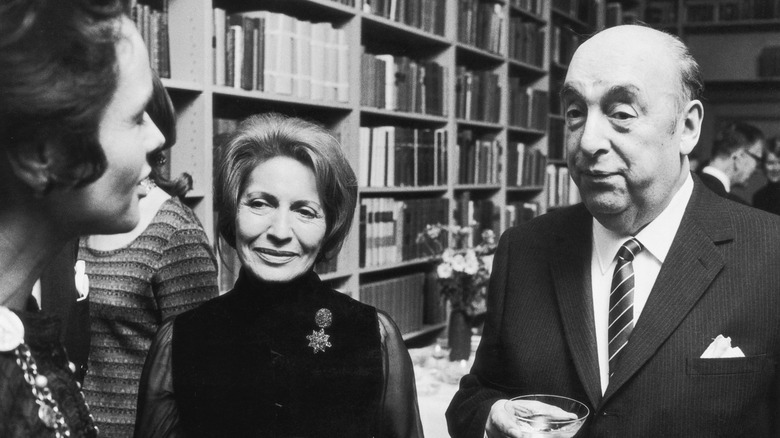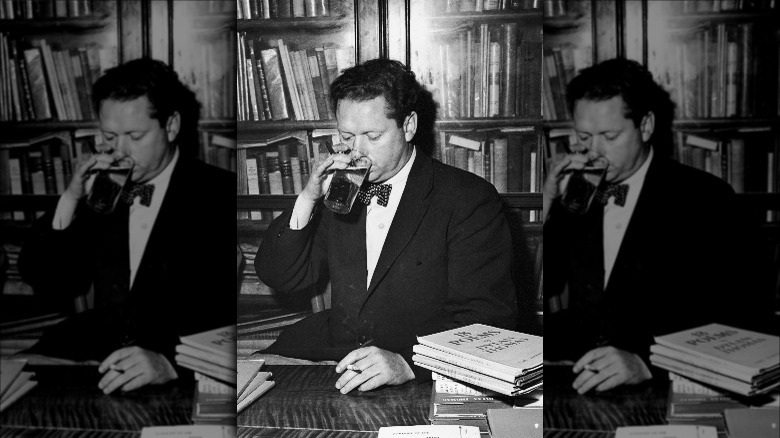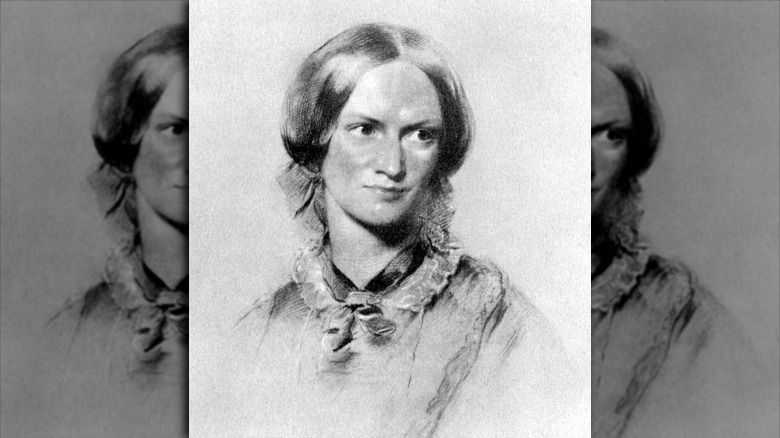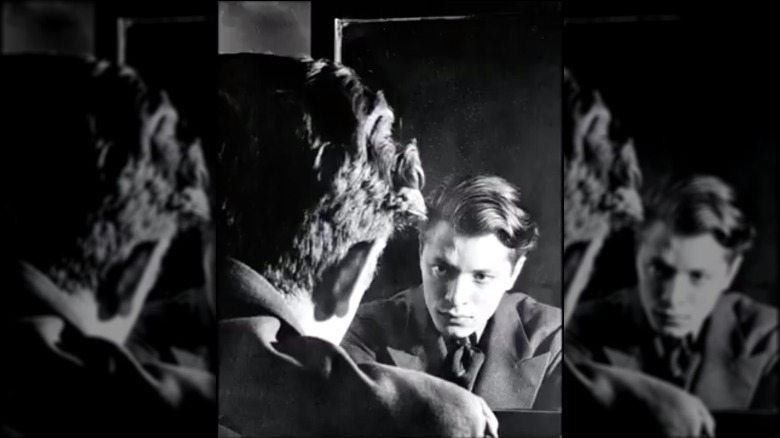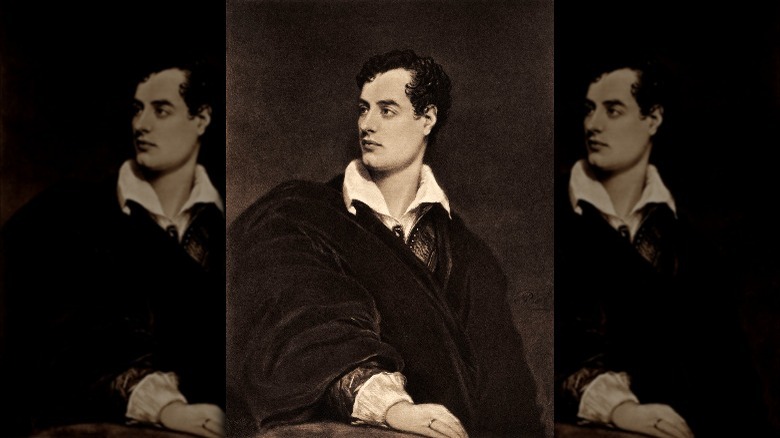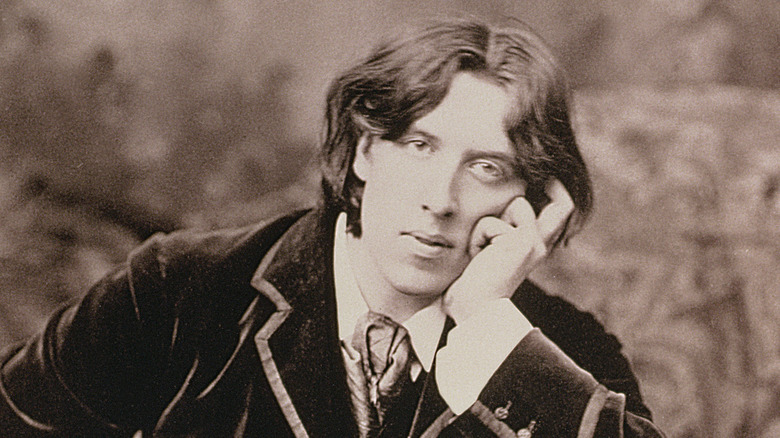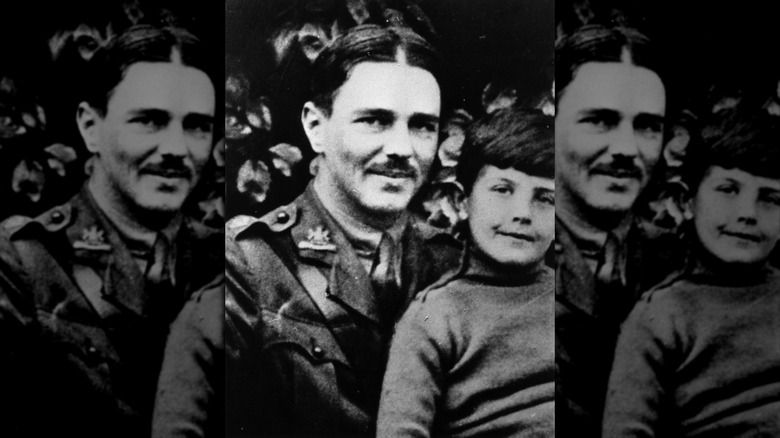Poets Who Died Tragic Deaths
The art of poetry and the reality of death go hand in hand; when someone dies, it is poetry that many turn to for solace, whether to remind them of the universality of mourning, or to help them make sense of their feelings and capture them in words.
As Donald Hall writes in the New Yorker, "poetry begins in elegy." Referencing the very earliest works of Western literature from the Epic of Gilgamesh to the works of Homer and Virgil, Hall describes how each addresses death in its own way. And death has remained a major theme in poetry throughout the centuries; how could it not, as the one inevitability of life itself?
Meanwhile, the role of the poet has, more than perhaps any other vocation, come to be associated with death, as the romantic image of the doomed writer has become enmeshed in the public consciousness. The biographies of some of our best known poets certainly seem to justify the stereotype. Here are some examples of poets who died tragic deaths.
Sylvia Plath suffered abuse before her death
Anyone even superficially familiar with the writing of Sylvia Plath will associate her with the major themes of suffering, mental illness, and death. The poet's slim but highly impactful body of work includes the two collections "The Colossus" and "Ariel," as well as the novel "The Bell Jar." When she died at the age of 30 from purposeful exposure to carbon monoxide, it became clear to the world just how personal the themes had been.
Born and raised in the U.S., Plath's early life was dominated by the tragedy of losing her beloved father, who died from complications of diabetes when Plath was just 8 years old, according to the Academy of American Poets. This event which would come to dominate much of her early work.
Though Plath found success as a student and writer at an early age, her adult life was plagued by severe clinical depression and the life-altering treatments she was prescribed to deal with it, which included strong medication and regular rounds of electro-convulsive therapy. As correspondence released after her death made clear (via the Guardian), Plath's mental health may also have deteriorated as a result of her relationship with the famous English poet Ted Hughes, which was characterized by mental and physical abuse, including a beating that may have caused Plath to miscarry.
If you or someone you know is dealing with domestic abuse, you can call the National Domestic Violence Hotline at 1−800−799−7233. You can also find more information, resources, and support at their website. If you or anyone you know is having suicidal thoughts, please call the National Suicide Prevention Lifeline at 1-800-273-TALK (8255).
Frank O'Hara's tragic accident
Best known for the collection "Lunch Poems" and for being a leading light of the New York School of poets alongside John Ashbury and Barbara Guest, Frank O'Hara is one of those figures in American literary history whose personality seems to jump out of every account of his short but well-lived life. After a spell in the U.S. Navy and obtaining degrees from Harvard and the University of Michigan, O'Hara worked his way up from postcard seller to curator at the Museum of Modern Art in New York (per The New Yorker). There, he mingled with the abstract expressionist painters who came to influence his own poetry, and with whom he frequently collaborated.
O'Hara was known as a highly social creature who thrived on animated debates among friends. He enjoyed the New York City nightlife, and crafted his poetry as energetic life was going on around him. "When asked by a publisher-friend for a book, Frank might have trouble even finding the poems stuffed into kitchen drawers or packed in boxes that had not been unpacked since his last move," said the painter John Button (per Fire Island News).
O'Hara's genius was to find meaning in everyday life and dovetail it effortlessly into his poems. For his admirers, however, no meaning could be found in the tragic accident that ended his life at the age of just 40. The poet was on a Fire Island beach in the middle of the night with a group of friends, waiting for a rescue taxi to collect them after their beach taxi had got a puncture. O'Hara became separated from the group, and was hit by a jeep coming over the dunes. He died in hospital two days later, according to Fire Island News.
Richard Brautigan's body wasn't found for five weeks
A cult figure in the counterculture of the 1960s, Richard Brautigan was catapulted to literary fame thanks to the publication of his 1967 dreamlike prose-poetry novel "Trout Fishing In America." His most enduring work includes the poem "All Watched Over By Machines Of Loving Grace," which describes a utopia in which technology improves human lives. However, as the '60s ended and the counterculture of that decade began to dissipate, Brautigan found himself adrift. His friend Thomas McGuane described him as "the baby thrown out with the bathwater," according to the Spectator.
As the 1970s turned into the 1980s, Brautigan's previously irrepressible productivity, through which he created the many slim volumes that would make him famous, began to wane, and his readership with it (per brautigan.net). He filled the void with alcoholism, paranoia, and a growing appreciation of firearms.
Brautigan's body was found by two friends at his home in Bolinas, California, at the end of October 1984, according to the New York Times. Horrifically, his body had been decomposing for five weeks before the grisly discovery, a sad indication of how neglected he had become as a writer and public figure in the years since his heyday. He had apparently died from a self-inflicted gunshot wound, and left behind a disturbing suicide note that said "Messy, isn't it."
If you or anyone you know is struggling with addiction issues, help is available. Visit the Substance Abuse and Mental Health Services Administration website or contact SAMHSA's National Helpline at 1-800-662-HELP (4357). If you or anyone you know is having suicidal thoughts, please call the National Suicide Prevention Lifeline at 1-800-273-TALK (8255).
Shelley died in a freak accident
Like many of the Romantic poets, the tragic circumstances of Percy Bysshe Shelley's private life have become part and parcel of his allure, and valorized as aspects of his romantic aesthetic. However, the final years of his young life were so harrowing that they have raised many questions about the exact nature of death at the age of just 29.
Shelley's key companions in the final years of his life were his second wife, Mary Shelley, who found fame as the author of "Frankenstein," and Lord Byron, a poet and legend in his own lifetime, whom Shelley had befriended during his travels around Europe with Mary. Although Shelley's final years saw the young poet create some of his most cherished works, the period was also dominated by deaths: those of three of his own children and Mary's niece, as well as the suicides of both Shelley's first wife, Harriet, and Mary's half-sister, Fanny Imlay, per Biography. Mary also suffered a miscarriage in June 1822.
As a result of these traumas, the young poet began to suffer from terrifying "waking visions," according to the Wordsworth Trust. In July 1822, he was sailing in the Gulf of Spezia, Italy, when his boat was caught in a freak storm. Some accounts suggest that Shelley was sailing erratically. His body and those of his crew were eventually washed up on the beach, where they were immediately buried for the sake of quarantine regulations. A month later, his remains were cremated. When his heart refused to burn, it was fished out of the fire, and kept by his friend, the critic Leigh Hunt, before finally passing into the possession of Mary.
John Keats contracted tuberculosis
When Percy Bysshe's body was found, his body was unrecognizible; he was identified solely by his clothes and what was found in his pocket — a book of poetry by his fellow Romantic John Keats (per the Wordsworth Trust). It shows how highly Keats was held among his contemporaries, even after his tragic death a year earlier in 1881, aged just 25.
Like many Romantic poets, Keats' genius was not widely appreciated in his own lifetime, but among those few who recognized the important work of him and his contemporaries, his importance in the movement was beyond doubt. Like many published English poets in the 1800s, Keats had been bequeathed a great personal fortune through inheritances — however, Keats' guardians, for one reason or another, failed to avail him of his full fortune, and as a young man with little financial sense, he spent much of his short life in poverty.
As outlined in the medical journal Clinical Infectious Diseases, Keats, who was often in poor health, was regularly in contact with one of the deadliest diseases of his day: tuberculosis. Keats cared for his infected brother, Tom, before contracting the disease, then known as consumption, himself. As his illness took hold, Keats relocated to Italy in the hope that the climate would have a positive effect on his ailments. He was buried in Rome, where his gravestone describes him as "one whose name was writ in water."
Apollinaire survived a war, but died shortly afterwards
Guillaume Apollinaire is not much known outside his native France, but his place in the history of early 20th century avant-garde literature is assured thanks to his influence on those who came after him and those he influenced during his short life. His importance can be grasped simply through his being credited as coining the term "surrealism," before his career as a poet is even taken into account (via Biography).
After moving to Paris in 1899, Apollinaire mingled with various writers and artists who would go on to become the greatest names in European culture and thought: Pablo Picasso, Marcel Duchamp, Erik Satie, and Georges Braques were all in the poet's inner circle (via the Academy of American Poets). After the publication of his collection "Alcools" in 1913, Apollinaire became a hero of the early modernist movement.
But as World War I arrived, political events required Apollinaire to refocus his attentions from poetry to world affairs. He enlisted in the French army, and suffered a serious head wound fighting in the trenches in defence of his adopted country (he was born in Italy).
Apollinaire survived the war, and lived to write about his experiences. But tragically, World War I was immediately followed by the Spanish Flu pandemic, which claimed the life of Apollinaire at the age of 38. His reputation was secured by "Calligrammes," a collection published just after his death that became one of his best loved works among the legions of French poets that followed.
Phillis Wheatley was enslaved
It is commonly held that much great poetry is wrought out of turmoil, but there isn't much greater turmoil than what the 18th century American poet Phillis Wheatley was laboring under: enslavement.
Wheatley was born in West Africa, kidnapped, and brought to America when she was just 7 years old, according to the Poetry Foundation. Her name as we know it today came from the family whom she served under: the Wheatleys of Boston, who had made their fortune as tailors. The history of Wheatley's career is problematic at best; though a slave, she was encouraged in her poetic abilities and thus became something of a showpiece to the family who — while they nurtured her talent — continued to enslave her.
As her talent grew, Wheatley came to enjoy unparalleled success for a Black poet in 18th century America, becoming the first African American to have their poetry published in a book. Wheatley also attracted great support from abolitionist activists in Europe. However, the poet fell quickly into poverty following the deaths of various members of the Wheatley family, and though she married shortly after, Wheatley, who suffered from chronic asthma throughout her life, died while her husband was in debtors' prison, aged just 31.
Pablo Neruda may have been assassinated
Chile's national poet rose to prominence during a tumultuous period for his country, and his name is now synonymous with the use of poetry as a political tool. Neruda established himself as a poetic force at an early age — his first publication came when he was just 13, while his first international success, the collection "Twenty Love Poems and a Song of Despair," was published to critical acclaim before he had hit the age of 20, per Britannica. It has since sold more than 20 million copies worldwide.
As Neruda's poetry took flight with a string of publications through his early 20s, the poet looked to supplement his royalties with a steady salaried income as a consul for his native country in Burma. While there, the young poet had something of a political awakening, and on taking up a similar position in Europe, Neruda publicly aligned himself with Communist causes and later drew criticism for his support of Soviet leader Joseph Stalin (per Biography).
Neruda would remain politically active throughout his life, even as the government of Chile was taken over by the dictator General Pinochet. He died in 1973 at the age of 69, with the official cause of death listed as prostate cancer. However, in recent years the Chilean government has been vocal in its belief that the poet may have been murdered as part of a purge of political opponents on the orders of Pinochet (per the Guardian).
Dylan Thomas' death is still debated
The death of Dylan Thomas is one the defining tragedies of 20th century Western poetry, and a symbol of the self-destructive forces that took away so many of the era's greatest talents far too young.
Thomas came from a humble Welsh background, but became a literary superstar thanks to the astounding lyricism and technical mastery as demonstrated in short poems such as "The force that through the green fuse drives the flower," which made his name. He later worked for the BBC, and was a popular performer at live poetry readings (per Britannica). He was increasingly known for his heavy drinking, an image he apparently cultivated as part of his romantically inclined poetic identity.
As the Guardian notes, the typical story goes that in November 1953, Thomas was in New York, enjoying a surge of popularity in the U.S., when, after "18 straight whiskies," he fell into a coma and died, aged 39. The coroner's report listed a swollen brain and a fatty liver among its findings — believed to be the result of his heavy-drinking lifestyle. However, decades after Thomas' death, it was revealed that the poet was also suffering from pneumonia, which accounts for him complaining about his breathing in the day before he died (per the Guardian).
If you or anyone you know is struggling with addiction issues, help is available. Visit the Substance Abuse and Mental Health Services Administration website or contact SAMHSA's National Helpline at 1-800-662-HELP (4357).
Charlotte Bronte had finally found happiness
One of the most heart-wrenching deaths imaginable belongs to the 19th century British novelist Charlotte Bronte. Charlotte was the eldest of the three Bronte sisters, whose novels became enormously popular within their own lifetimes and that have since served as source material for a great many later pieces of art.
As described by annebronte.org, Charlotte was one of six siblings, but by 1949 she was the only surviving one. What followed was a long period of great depression and loneliness, while Charlotte mourned for her literary sisters and tried to overcome the sense of dread that the beautiful Yorkshire landscape they had all shared and loved since childhood now evoked for her.
Finally, however, Charlotte's long dark period of solitude ended. In 1954, she happily married Arthur Nicholls, and seemed to be on course to begin a love story that could have been pulled from one of the Brontes' own books. However, it was not to be; within a year of marriage, Charlotte died from complications of her first pregnancy. Heartbreakingly, Charlotte's final words are said to have been: "I am not going to die am I? He will not separate us, we have been so happy." She was 38.
Delmore Schwartz died a lonely death
Though little remembered today, Delmore Schwartz was a figure at the vanguard of New York poetry in the mid-20th century. As a teacher, he had a profound effect on those who came into contact with him, including fellow poet John Berryman — who noted Schwartz as a source of inspiration throughout his life — and rock legend Lou Reed, who was taught by Schwartz in New York, and who later dedicated two songs to Schwartz, calling him "the first great man I ever met" (via the Philadelphia Inquirer).
However, as the poet grew into middle age and his second marriage failed, Schwartz found himself increasingly isolated, and his circle of friends, acquaintances, and admirers grew smaller and smaller. The poet increasingly struggled with his mental health, a result of his isolation but also of his growing alcoholism. He died alone in a Times Square hotel room in July 1966 of a heart attack, aged 52. According to the Poetry Foundation, Schwartz's body was resting in the morgue for three days before someone came to identify it.
If you or anyone you know is struggling with addiction issues, help is available. Visit the Substance Abuse and Mental Health Services Administration website or contact SAMHSA's National Helpline at 1-800-662-HELP (4357). If you or someone you know is struggling with mental health, please contact the Crisis Text Line by texting HOME to 741741, call the National Alliance on Mental Illness helpline at 1-800-950-NAMI (6264), or visit the National Institute of Mental Health website.
Lord Byron died a Greek hero
The ultimate literary bad boy, Lord Byron was the 19th century's equivalent of a hell raising rockstar. His hugely entertaining poetry — which often chronicled the escapades of swashbuckling antiheroes while making caustic asides about contemporary society — came to reflect his own celebrity, resulting in massive sales and a reputation for libertine behavior.
Though Byron undoubtedly encouraged his own reputation for amorality, things certainly went too far in 1816, when rumors that the poet had an incestuous relationship with his own half-sister became widespread in his native England, and he went into voluntary exile (per Britannica). It could have been that Byron was destined to live a peripatetic and dissolute life from thereon out, but instead he embarked on one final adventure that secured his heroic legacy.
In 1823, he became involved in the Greek war for independence against Turkey, fighting for the Greeks and giving his own funds towards the war effort. He even personally led Greek troops. However, Byron fell ill in February 1824, and died in an army barracks in April that year. He is fondly by the Greeks as a war hero.
Hard labor ruined Oscar Wilde's health
Like Lord Byron, Irish-born Oscar Wilde was a major celebrity in the 1800s. A brilliant wit who became a famous socialite as his literary works made him a household name, his first taste of literary success came in 1878 while still a student at Oxford University, when he won the prestigious Newdigate Prize for his poem "Ravenna" (per Britannica). Over the next two decades, Wilde established himself as a leading writer, intellectual, and advocate for the newly established aesthetic art movement through his poetry and journalism, his satirical plays, such as "The Importance of Being Earnest," and his novel, "The Picture of Dorian Gray."
But Wilde's life was shattered and his reputation destroyed after he attempted to sue the father of his lover, Lord Alfred Douglas, who had publicly accused Wilde of sodomy. Wilde's initial case collapsed, but as evidence of his homosexuality came to light, Wilde was tried and sentenced to two years' hard labor, an outcome that left the writer physically broken. After his sentence, Wilde fell into poverty and his health continued to decline — he died in Paris in 1900, three years after his release, at the age of 46.
Celebrating 50 years of the decriminalization of homosexuality in England, in 2017 Wilde was given an official pardon by the British government (per the Telegraph).
Wilfred Owen died in battle shortly before the end World War I
The British poet Wilfred Owen wrote some of the finest poetry written about war. His doesn't valorize war or lionize those who lead and fight in them; instead, Owen's poetry paints a haunting picture of trench warfare in all its sickening futility, and has set the tone for how World War I has been viewed ever since.
The physical damage of machine gun fire, poison gas attacks, and heavy shelling is recounted by Owen, and was informed by his first-hand experiences (via the Poetry Foundation). As a young soldier, he fought in the trenches as his fellow infantry — mainly young men themselves — were cut down around him.
In 1917, Owen was hospitalized in Scotland after reporting severe headaches, a consequence of shell shock. He also developed a stutter as a result of his trauma. That year, he met the poet Siegfried Sassoon, who helped Owen develop as a poet and assisted him in publishing his work.
However, the following year, Owen returned to the trenches as a commanding officer. He was killed in action only a week before armistice. During his lifetime, only five of Owen's poems were published, but his reputation grew posthumously. His most famous poems — such "Dulce E Decorum Est" and "The Sentry" — endure as some of the most visceral and moving accounts of the horrors of war and the mindless loss of life.
